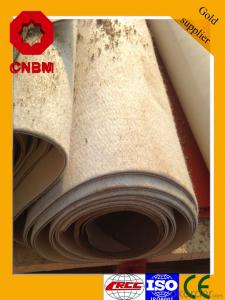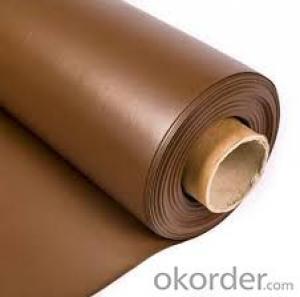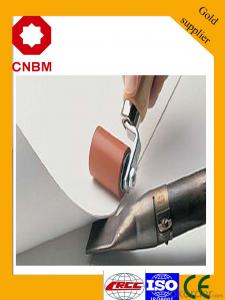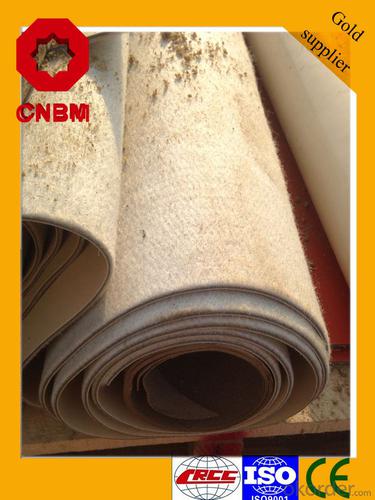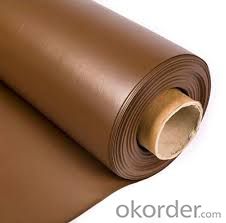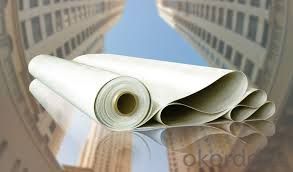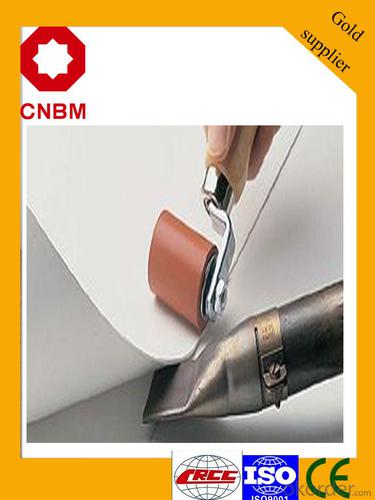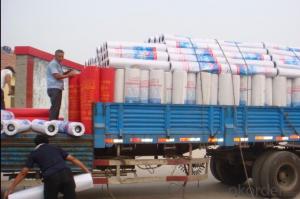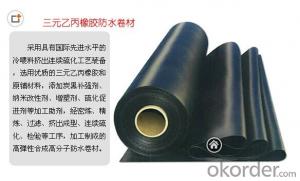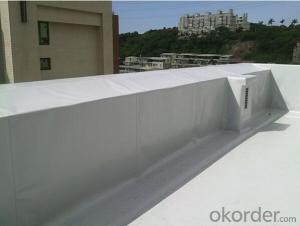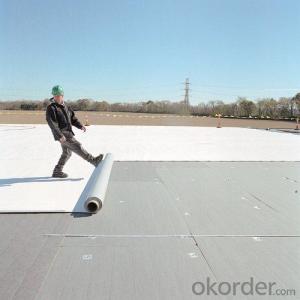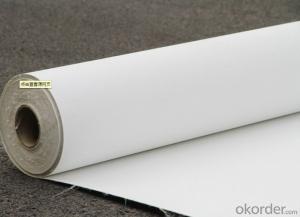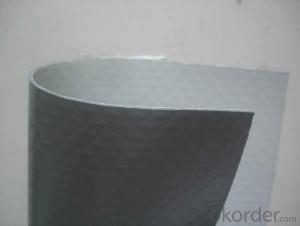China Manufacturer Top Quality PVC Waterproof Membrane
- Loading Port:
- Tianjin
- Payment Terms:
- TT OR LC
- Min Order Qty:
- 2000 m²
- Supply Capability:
- 10000 m²/month
OKorder Service Pledge
OKorder Financial Service
You Might Also Like
Product description
Polyvinyl chloride PVC waterproof membrane is a kind of excellent performance of polymer waterproof material,PVC resin as the main raw material,add all kinds of special additive and anti-aging composition,the use of advanced equipment and advanced technology extrusion rolling is made.The product has the tensile strength and elongation high shrinkage of small,low temperature soft good,long life and other advantages, the products wide 1.2m to 3.0m, the thickness of 0.8-2.0 mm(special specifications can be customized),stable performance,reliable quality,construction is convenient.
Application Scope
The products are widely used in all kinds of civil construction,subway,tunnel,water conservancy,landfill site,chemical industry,metallurgy and other areas of waterproof seepage control,corrosion engineering
Features:
Excellent anti-aging property.
Puncture- resistant.
Welding construction,
High tensile strength, good elongation, good dimensional stability.
Good plasticity.
It has self-extinguishing from fire property.
Materials surface is smooth, fast color, stain resistance.
More wide, Wastage become less when being used.
Type:
N1—Exposed PVC waterproof membrane.
(It is mainly used as details treatment for exposed roof waterproof project)
N2—Non-exposed PVC waterproof membrane.
(It is mainly used as details treatment for non-exposed roof waterproof project)
L1—Exposed PVC waterproof membrane with fabric
(It is mainly used for exposed roof waterproof project)
L2—Non-exposed PVC waterproof membrane with fabric.
(It is mainly used for non-exposed roof waterproof project)
W1—Exposed reinforced PVC waterproof membrane .
(It is mainly used for steel structure roof exposed waterproof project)
W2—Exposed reinforced PVC waterproof membrane .
(It is mainly used for steel structure roof non-exposed waterproof project)
Advantages

Technical Parameters
No. | Item | Index | |||||
| 1 | Thickness of resin layer of the middle fabric ,mm≥ | - | - | 0.40 | 0.40 | 0.40 | |
| 2 | Tensile performance | Max tensile strength,N/cm ≥ | - | 120 | 250 | - | 120 |
| Tensile strength,NPa ≥ | 10 | - | -10 | - | - | ||
| Max elongation% ≥ | - | - | 15 | - | - | ||
| Breaking elongation % ≥ | 200 | 150 | - | 200 | 100 | ||
| 3 | Heat treatment size change rate%≤ | 2.0 | 1.0 | 0.5 | 0.1 | 0.1 | |
| 4 | Cold bonding | -25°c No cracks | |||||
| 5 | Watertightness | 0.3mPa,2h waterproof | |||||
Packaging & Shipping
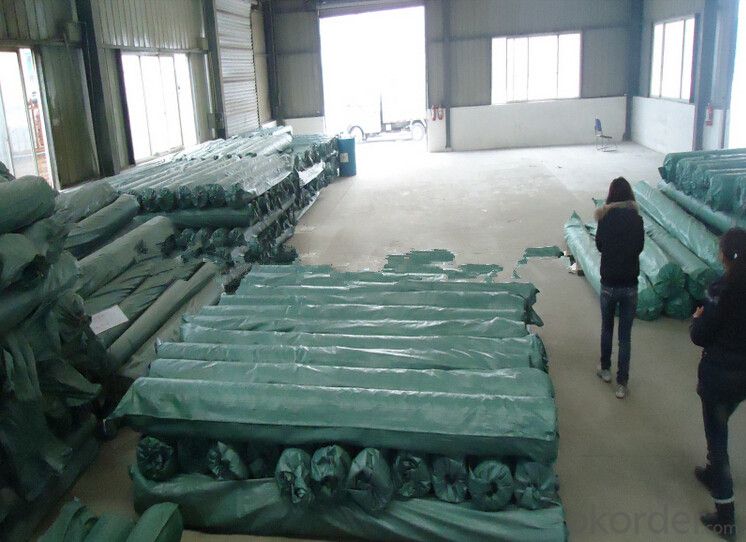
product show
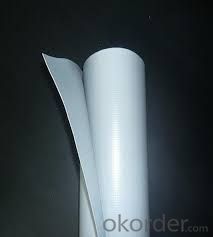
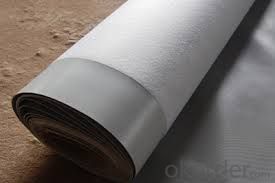
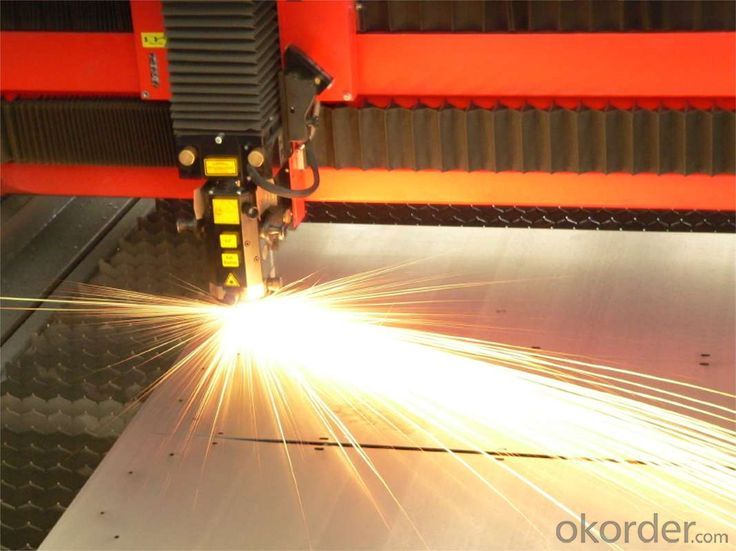
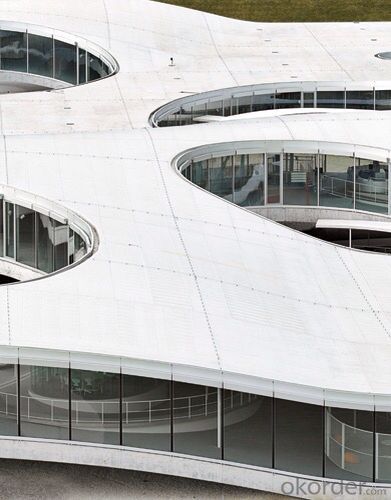
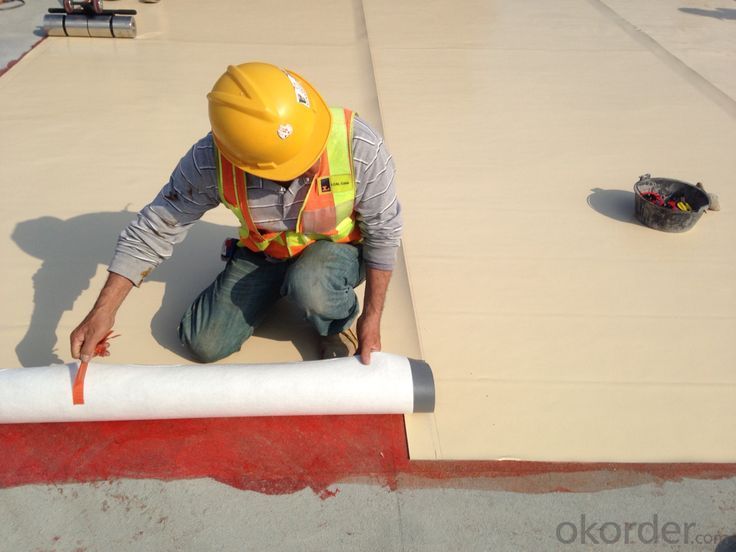
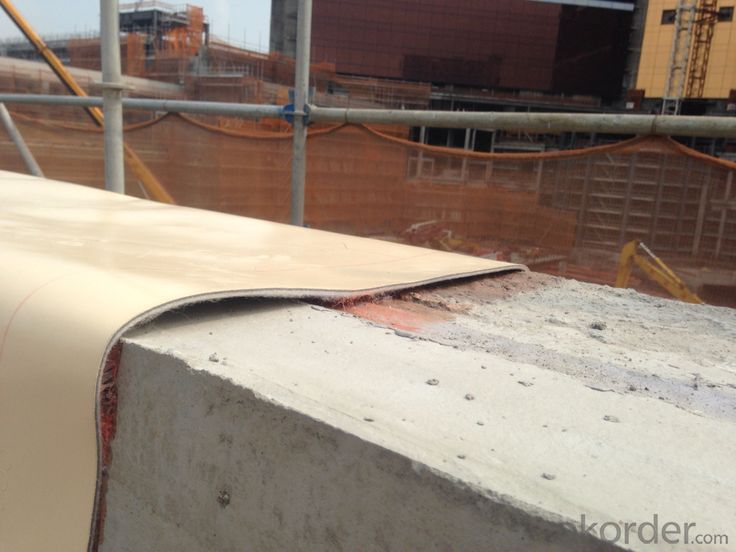
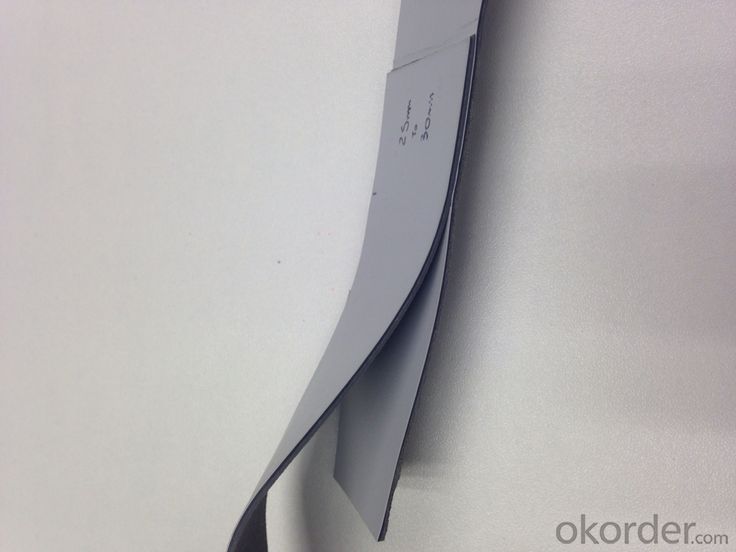
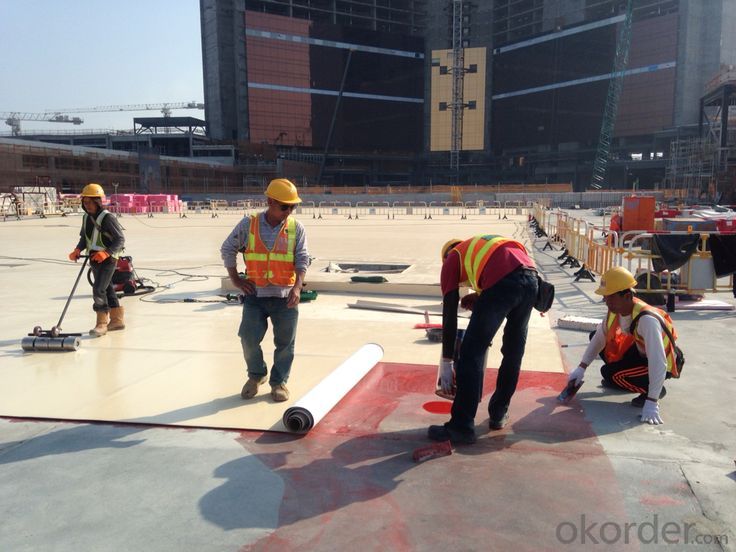
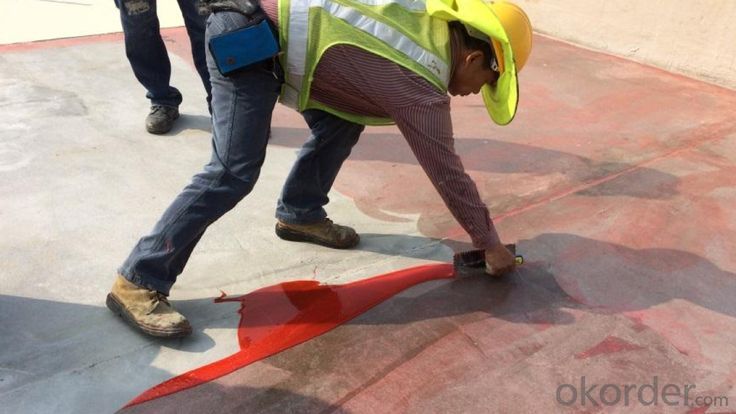
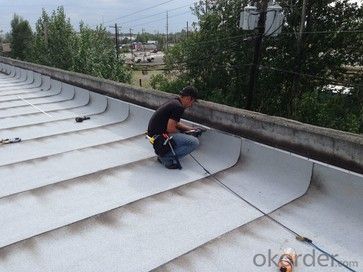
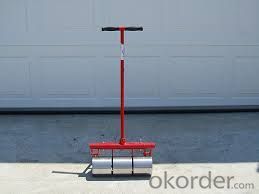
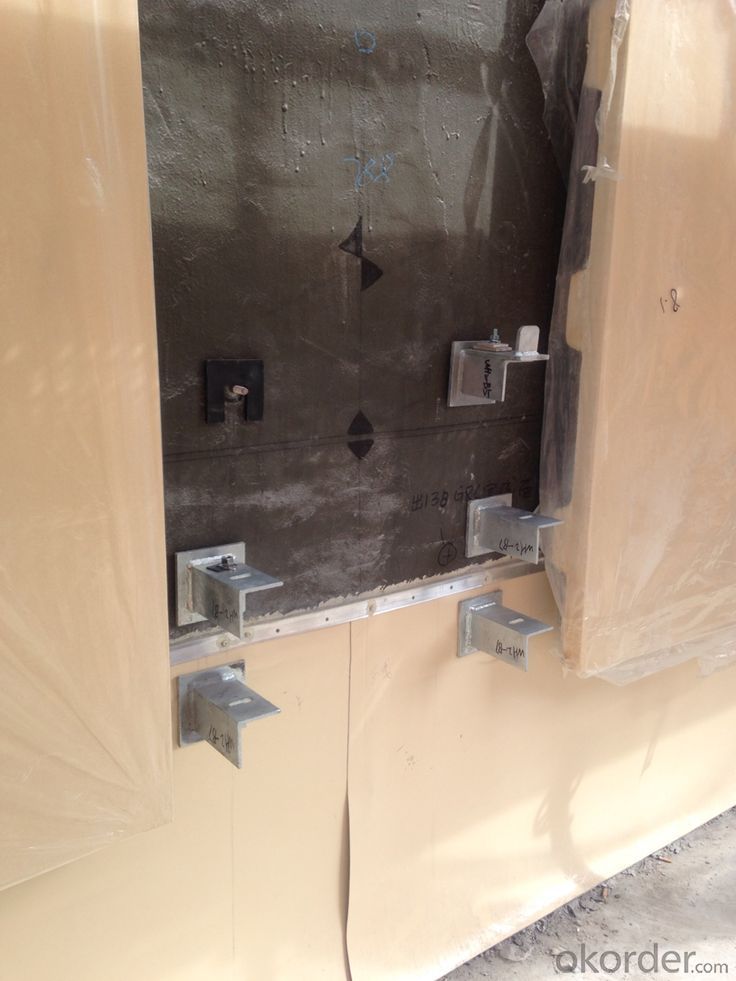
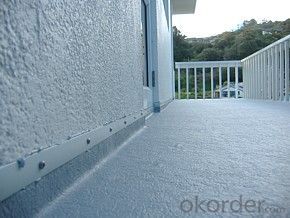
FAQ
Q: What's the delivery time ?
A: 3-5 days for 1-600 rolls, 10-15 days for container.
Q: What's the payment terms ?
A: TT/LC
Q: How do you make replacement with quality problems ?
A: New replacement will be packed into your next order or send to you directly after receive video or photo about quality problems.
- Q: Can a waterproofing membrane be used in areas with vehicular traffic?
- Yes, a waterproofing membrane can be used in areas with vehicular traffic. In fact, there are specific types of waterproofing membranes designed to withstand the weight and movement of vehicles. These membranes, known as vehicular membranes or traffic-bearing membranes, are usually made of more durable materials such as rubberized asphalt or modified bitumen. They are designed to provide a strong and flexible barrier against water and moisture while also being able to handle the heavy loads and constant traffic associated with vehicles. Vehicular membranes are commonly used in parking garages, bridges, and other areas where vehicles are present.
- Q: Is a waterproofing membrane resistant to extreme weather conditions?
- Yes, a waterproofing membrane is designed to be resistant to extreme weather conditions. It provides a protective barrier against heavy rain, snow, and intense sunlight, ensuring that it remains intact and effective in preventing water infiltration and damage to the underlying structure.
- Q: Can a waterproofing membrane be used on wood block surfaces?
- Yes, a waterproofing membrane can be used on wood block surfaces. Wood block surfaces, such as decks or wooden floors, can benefit from the application of a waterproofing membrane to protect against water damage and extend the lifespan of the wood. Waterproofing membranes create a barrier that prevents water from seeping into the wood, which can cause rot, warping, or decay over time. By applying a waterproofing membrane, the wood block surface can be effectively protected and maintained, ensuring its durability and longevity. However, it is important to choose a waterproofing membrane that is specifically designed for wood surfaces and follow the manufacturer's instructions for application to ensure the best results.
- Q: Are waterproofing membranes resistant to gas and vapor transmission?
- Yes, waterproofing membranes are generally resistant to gas and vapor transmission. These membranes are designed to create a barrier that prevents the passage of liquid water, as well as gases and vapors, effectively ensuring the protection and integrity of the structure they are applied to.
- Q: Can a waterproofing membrane be used on precast zinc surfaces?
- Yes, a waterproofing membrane can be used on precast zinc surfaces. Waterproofing membranes are designed to protect various types of surfaces from water infiltration, including concrete, metal, and even zinc. These membranes create a barrier that prevents water from penetrating the surface, which is particularly important for precast zinc surfaces that may be exposed to moisture or water. Applying a waterproofing membrane to precast zinc surfaces can help prolong their lifespan and protect them from potential damage caused by water, such as corrosion or deterioration. It is important to select a waterproofing membrane that is compatible with zinc and follow the manufacturer's instructions for proper application and maintenance.
- Q: Does a waterproofing membrane require any special maintenance?
- Yes, a waterproofing membrane does require some special maintenance. While it is designed to be durable and withstand various weather conditions, regular maintenance is necessary to ensure its effectiveness and longevity. Some maintenance tasks include: 1. Regular inspections: Check the membrane for any signs of damage, such as cracks, tears, or punctures. Inspect the seams and edges to ensure they are properly sealed. 2. Clean the surface: Remove any debris, dirt, or vegetation that may have accumulated on the membrane. This can be done using a broom, brush, or pressure washer (if recommended by the manufacturer). 3. Clear drains and gutters: Ensure that the drains and gutters connected to the membrane are not clogged or blocked. This will prevent water from pooling on the surface and potentially causing damage. 4. Repair any damages: If any cracks, tears, or punctures are found, they should be repaired promptly to prevent water leakage. Follow the manufacturer's instructions for the appropriate repair method and materials. 5. Regularly check the waterproofing system: If the membrane is part of a larger waterproofing system, such as a basement or roof, it is important to inspect and maintain the entire system. This may involve checking the integrity of other components, such as drainage pipes or flashing. 6. Consider professional maintenance: Depending on the size and complexity of the waterproofing system, it may be beneficial to hire a professional maintenance service. They can conduct thorough inspections, perform necessary repairs, and provide expert advice on maintaining the membrane. By following these maintenance practices, you can ensure that your waterproofing membrane remains in good condition and effectively protects your structure from water damage.
- Q: Can waterproofing membranes be used on shower walls?
- Indeed, waterproofing membranes are suitable for application on shower walls. They play a crucial role in shower construction by preventing water leakage and safeguarding adjacent areas from potential harm. These membranes act as a barrier, effectively blocking water infiltration into the shower's structural components. Typically, they are installed behind the tile or other wall coverings, serving as an additional protective layer. Designed to be pliable, long-lasting, and moisture-resistant, waterproofing membranes guarantee the preservation of watertight shower walls and safeguard against any water-related harm.
- Q: Can a waterproofing membrane be used in bathrooms or showers?
- Yes, a waterproofing membrane can be used in bathrooms or showers. In fact, it is highly recommended to use a waterproofing membrane in these areas to prevent water damage and leakage. A waterproofing membrane acts as a barrier that prevents water from penetrating through the walls, floors, and other surfaces in the bathroom or shower. It is typically applied before tiling or finishing the surfaces, providing an extra layer of protection against moisture and ensuring that the underlying structure remains dry. This not only helps to prevent mold and mildew growth but also prolongs the lifespan of the bathroom or shower.
- Q: Can a waterproofing membrane be used for historical buildings?
- Historical buildings can indeed benefit from the use of a waterproofing membrane. While it is vital to maintain the architectural integrity and historical significance of these structures, it is equally important to shield them from water damage. Waterproofing membranes offer an effective solution to prevent water infiltration, which can lead to decay or deterioration. These membranes can be applied to various surfaces, including roofs, walls, and foundations, without compromising the visual appeal of the historical building. It is essential to select a waterproofing membrane that is suitable for historical buildings, taking into account factors such as breathability, compatibility with existing materials, and adherence to preservation guidelines. By carefully choosing and correctly installing a waterproofing membrane, historical buildings can be safeguarded against moisture-related problems, ensuring their longevity and continued preservation.
- Q: Can a waterproofing membrane be installed on wood surfaces?
- Yes, a waterproofing membrane can be installed on wood surfaces.
Send your message to us
China Manufacturer Top Quality PVC Waterproof Membrane
- Loading Port:
- Tianjin
- Payment Terms:
- TT OR LC
- Min Order Qty:
- 2000 m²
- Supply Capability:
- 10000 m²/month
OKorder Service Pledge
OKorder Financial Service
Similar products
Hot products
Hot Searches
Related keywords
